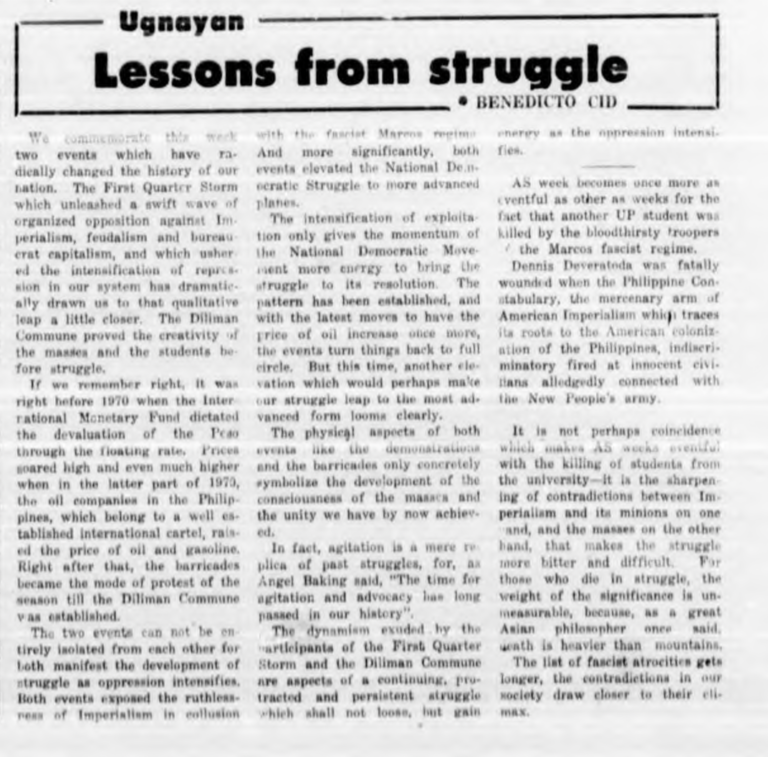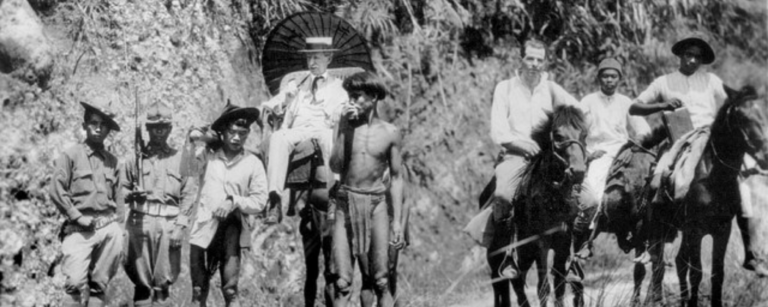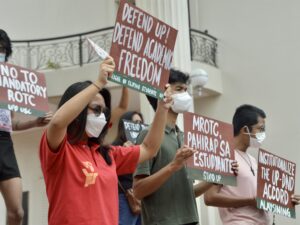
Did you share that lucky CRS Pepe? Have you become a spaghetti because you did not forward the “mahiwagang spaghetti” message to ten friends? Did you post the mandatory “I ![]() CRS” the night before the pre-enlistment module opens?
CRS” the night before the pre-enlistment module opens?
I really hope you get those full units. But certainly not on the unreliable basis of luck and memes. Our full units should instead be based on our right to free education.
Getting into the University of the Philippines (UP) is already a privilege. An article by The Philippine Collegian dated October 31, 2019 notes that half of UP Dilman students in the past five years come from private high schools – most of which are from Metro Manila. Despite the free tuition law aimed to provide public school students access to tertiary education, the state’s neoliberal policies made education more inaccessible to the poor.
(READ: http://issuu.com/…/philippine_collegian_97_issue_08…)
Moreover, Kulê’s January 27 article reports that 1,622 out of 14,054 students enrolled in the first semester of Academic Year 2019-2020 were ineligible for free tuition. This grim reality for thousands of students intensified when 2,339 students had to pay P300 to P1,500 per unit under the still-existing anti-student Socialized Tuition Scheme as of January 14, 2020.
(READ: http://issuu.com/…/philippine_collegian_97_issue_13…)
To quote from UP’s letter to Oblation Scholars, they were given the “privilege of UP Education.” By extension, this also applies to all students who are privileged enough to study in an institution that tops global and regional rankings. I would like to make it clear that privilege is not necessarily bad, but should rather be used to eradicate its source – poverty and inequality.
The mechanism of the CRS bears structures and limitations that restrict students to actually receive the education they need. Hence, it is another privilege to the right to education.
Reading the CRS meme culture – albeit its humor – reveals a deeper crisis and alarming state of the Philippine education system — particularly the case of UP which is a hotbed of neoliberal policies of the state. By this, we mean the constant privatization of UP, its continuing subservience to the global market, and its reduction to a mere factory.
Given that UP is the state’s laboratory for its neoliberal policies, the CRS is also a symptom of two decades of neoliberalism education that emphasizes competition, the free market, and quality assurance. The role of education has shifted from its historical role in nation-building to its role as a producer of cheap and docile labor equipped to be enslaved by giant companies.
CRS itself is built on the logic and structures of the market. The basic components of the market – supply and demand – are explicitly present in it. Professors and available classes act as the supply-side which is often very limited due to annual budget cuts. This year, UP’s approved budget was cut by P1.6 billion pesos. The scarcity of supply results in high demands from the students wanting to enroll in classes. Thus, there is high competition in the market.
Being granted full units or getting your desired classes actually depend on luck and probability. But not everyone is “lucky” enough to get the professors or classes they want. The intense competition in classes makes it harder for the students who wait patiently in the waitlist module, dumb theirselves in prerog, or force themselves to take subjects they do not want.
The myth of the CRS enlistment as a free market is proved by students who are deprived of their right to education—for markets only work when you have money to buy. Education has become more inaccessible especially for those in poverty who had to compromise studying to work just to make ends meet. Even UP knows that 5,600 students cannot afford its shift to remote learning.
To some degree, the CRS is a marketplace. There may be a wide variety of classes but in the long run, you will notice that the final decision belongs to a system that assigns everything at random. This tendency further individualizes our perspective on education. But we should be reminded of education’s collective potential to learn from and serve the people.
At a time where grades have defined who we are, we must return to humanizing ourselves again that education is meant for us to learn and practice our ideas. By standardizing education in accordance with the market, we become boxed to our present conditions suitable to our branding as globally-competitive “products.” In the end, we are humans, not commodities.
The madness of the education system to evaluate our work is in line with the neoliberal value of quality assurance and productivity. The Grades Viewing module can greatly affect how we think of ourselves and fellow UP Students. Even UP’s practice of honoring only summa cum laudes during graduation rites is a reminder of its glorification of only those who got high grades.
This same logic is applied to the Student Evaluation of Teachers and ProfsToPick (or RUPP) where professors are defined if they are still “valuable” to become instructors. The constant pressure to receive high grades or evaluation leads to immense pressure that not only affects our social capital but also our mental health, performance, and passion for learning.
With its great potential to make our lives easier, the CRS is a genius product of technology and human intellect. It has improved past inhumane conditions during manual registration where long queues start at four in the morning, students camp overnight in the campus only to get rejected or delayed due to lack of slots. This development was hijacked by neoliberal policies in UP.
The CRS itself is not our enemy but an education system that is built on privilege.
An education that still traces its roots to and serves colonial masters, sold and bought as a commodity in the market, and represses any attempt to overhaul the system is what we have today. The education sector remains as an income-generating market for capitalist-educators and administrators. Neoliberal education’s profit and market-driven character puts the burden on us, the students.
(READ:www.facebook.com/1655887737964162/posts/2800657813487143/)
To solve this, we must oppose budget cuts so that more slots can be opened to address high competition and lack of slots. CRS reveals the horrors of universities: contractualization of professors, lack of budget, infrastructures, and teaching units. Only the state which abandoned education and accelerated its neoliberal thrust in UP must be made accountable to provide our right to free and accessible education.
CRS means Computerized Registration System. But it is more accurate for it to stand for an education system that is Commercialized, Repressive, and Subservient to foreign domination.
I hate CRS.
#FreeEducationForAll
Originally published August 15, 2020
Featured image courtesy of SINAG







